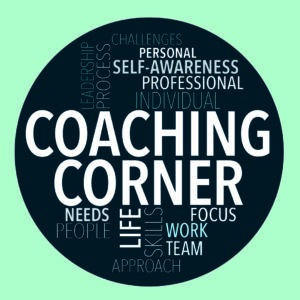
Letting go to grow: How one entrepreneur reclaimed his life and business
Frank's transformation from overwhelmed investor to empowered leader demonstrates how coaching and collaboration enabled him to stand back, delegate, and recover his life....

by Nathalie Ducrot Published August 16, 2024 in Coaching Corner • 5 min read

Faysal is VP for Latin America with an international energy company and had led major transformations, tripling the value of the business from 2020. He is keen to consolidate his career at the organization by joining the board, but there are roadblocks. Informal feedback from some of the senior management team suggests he is viewed as something of a maverick: a free thinker, quite at odds with a company culture built on rigid structure and tradition. Faysal feels frustrated with what he sees as intransigence and a lack of vision within the C-suite and decides to bide his time and put these ambitions on hold. But something happens.
The company comes under investigation for some questionable strategic decisions. The ensuing financial crisis requires an urgent restructuring of the board, and key members of the C-suite are required to resign. Faysal is approached and asked if he will now join the board and move with his family to Europe. Faced with this opportunity, but conscious that there may also be issues ahead reconciling his approach with the company culture, Faysal seeks out the support of a professional executive coach.
With the coach, Faysal starts to explore a new concept: the Use of Self (UoS).
The coach poses a key question to Faysal. In his interpersonal interactions, the coach asks him who he wants to be in the boardroom. “The biggest challenge I face is refraining from being myself,” he says.
Together with the coach, Faysal explores this statement. He realizes that this attitude is neither sustainable nor healthy; it’s also counterproductive in that it will delimit his ability to put the full spectrum of his talents to use supporting organizational growth in these turbulent times. This feels like an epiphany.
With the coach, Faysal starts to explore a new concept: the Use of Self (UoS). This is the conscious use of one’s whole being in the intentional execution of a role. It’s being aware of and deploying our own emotional, cognitive, and perceptual processes to create impact and change. For Faysal, this is about resolving the tension between wearing a “mask” or “costume” and bringing his full, authentic self to the role and proactively managing the interplay between behaviors to elicit better outcomes for himself and others. This begins with conscious and intentional self-leadership.
Faysal’s coach asks him to reflect on feelings that either strengthen or diminish his sense of well-being and performance and to monitor the energy levels that attach to these feelings. Practicing this kind of “internal workout,” he starts to zoom in to explore his feelings and zoom out to consider the external context and other people’s reactions. The coach encourages Faysal to monitor his energy levels during this exercise to measure how balanced he feels. In this way, he can understand how his adversarial and defensive behaviors could elicit adversarial and defensive responses from others – and, importantly, demonstrate why adversity has no place in the higher levels of his organization.
What has become clearer to Faysal and his colleagues is his commitment to the organization's development.
With help from the coach, Faysal starts to lean into effective ways of balancing two opposing behaviors. One is the disruptor who drives business transformation; the other is the collaborative performer and executor of strategy, who can work seamlessly within the organization’s formal structure and governance mechanisms. Faysal is encouraged to continuously “read the room” for indicators that he has these two behaviors in check, zooming in and out in a way that feels more ambidextrous as he brings and balances more of himself. At the same time, his colleagues on the board report that they are better able to leverage Faysal’s fresh perspective and undoubted skills to test and assess new strategies in a way that feels beneficial and informational to all.
What has become clearer to Faysal and his colleagues is his commitment to the organization’s development. The coaching journey has helped him to modulate his leadership and collaborative behaviors such that he can leverage his unique talents to create value for the organization he loves, but in a way that aligns better with the established norms, systems, and processes of the organization and its leadership team. Faysal has discovered that by exerting intentional self-awareness and behavioral balance, he is able to enact the kind of ambidextrous leadership that he and the board need for him to drive excellence and profitability while existing in greater harmony with his peers. He has successfully enacted a major shift that he and his fellow board members can perceive in real-time.

Executive & Team Coach (MCC by ICF and MP by EMCC)
Nathalie Ducrot is an Executive & Team Coach (MCC by ICF and MP by EMCC). She believes in the power of coaching – and in a world where we wake up inspired to have an impact and grow by growing others. As a lifelong learner and creative mind combining human dynamics and appreciative coaching, she has extensively researched how coaching can help people and organizations who want to thrive in the face of increasing change and complexity. Her holistic approach includes working at both systemic and personal levels.

May 9, 2025 • by Vincent Pieterse in Coaching Corner
Frank's transformation from overwhelmed investor to empowered leader demonstrates how coaching and collaboration enabled him to stand back, delegate, and recover his life....

May 2, 2025 • by Sunita Sehmi in Coaching Corner
Sarah, a senior manager at a global pharmaceutical company, excels in her role but feels overwhelmed by workplace demands. Struggling to assert herself and make aligned personal decisions, she recognizes the need...

February 13, 2025 • by Nadine Hack in Coaching Corner
Through mentoring, team empowerment, and striking a balance between leadership and personal development, Susan, a female CEO, overcomes micromanagement and burnout....

January 31, 2025 • by Angelica Adamski in Coaching Corner
In our Coaching Corner series, we share real-world coaching cases that come from our work with leaders....
Explore first person business intelligence from top minds curated for a global executive audience